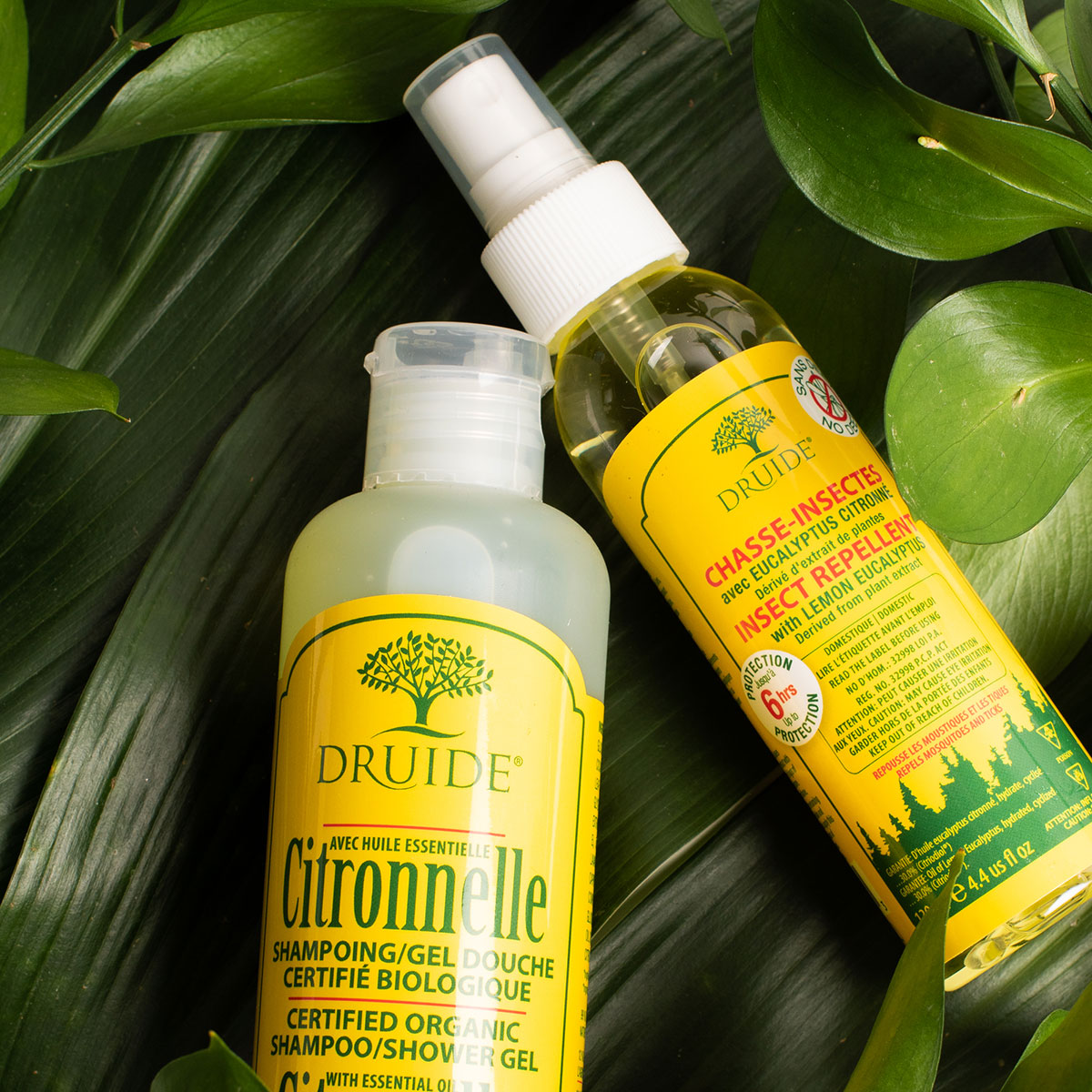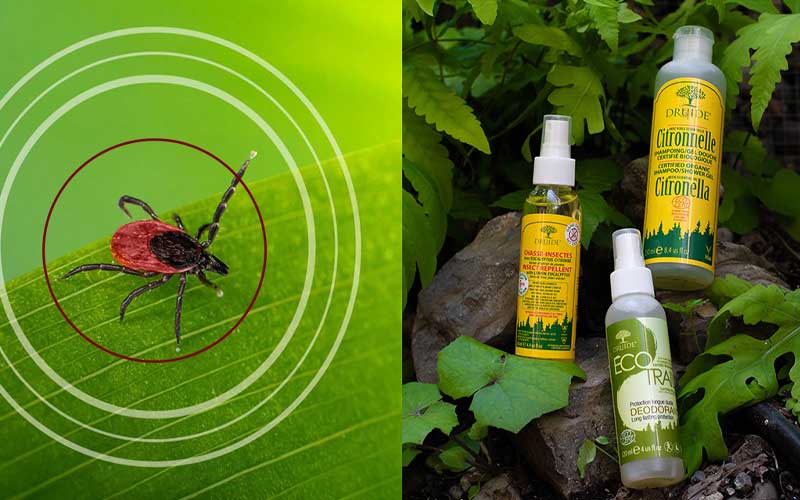Ticks Are On The Rise
Global warming and other environmental changes are currently contributing to the expansion of tick numbers. This is because the increase in temperature creates a more favorable environment for ticks.
Risk associated with ticks: Effects of climate and other environmental changes
Climate change and other environmental changes are expected to increase the risk associated with ticks and tick-borne diseases. In addition to Lyme disease, anaplasmosis, babesiosis, Powassan encephalitis virus, and relapsing fever caused by Borrelia miyamotoi, have begun to spread.
People most at risk are those who engage in outdoor activities such as hunting, fishing, hiking, camping, gardening, mushroom or berry picking, forestry, and farming; in or near-endemic areas
Be safe: Protect yourself when out in the wild!
To avoid the consequences of the diseases that ticks transmit, the key is to remember to protect yourself (with the right products!).
Druide’s EcoTrail Outdoor Collection, designed around eucalyptus and lemon eucalyptus, is the ideal range: it is 100% natural, contains no chemical ingredients (such as DEET, sulfate, paraben etc.) and has biodegradable containers. In addition to being environmentally friendly, the EcoTrail products have a proven effectiveness against ticks, mosquitoes, black flies etc.
Indeed, its complete collection composed of its Ecotrail Insect Repellent, Ecotrail Shampoo & Shower Gel, Ecotrail Multi-Purpose Soap, After Sting Calming Gel, or Ecotrail Deodorant Spray, will allow you to stay protected during your outings and thus enjoy your activities without stress!
For more information on ticks and their diseases, read this article : La Presse


 Français
Français







